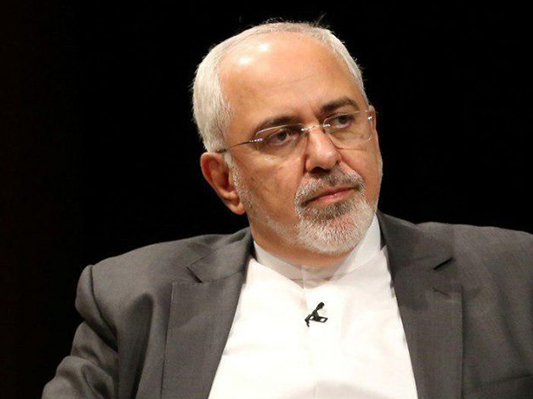Speaking in a live interview with the state TV on Monday, Zarif pointed to the nuclear deal and its achievements, and noted it cannot be claimed that the JCPOA could not have been written in a better way. “However, I can claim the current deal is neither all we wanted, nor what the Americans wanted.”
“We insisted that all nuclear-related sanctions should be removed all at once. The US team had its own limitations and they had to refer to the Congress to lift sanctions. Under such circumstances, we were able to agree on a deal which was the only possible one in case of being ratified,” pointed out Zarif.
Iran did not expect the US to show good faith, and totally predicted what Trump is doing today, he noted, adding that every word of the deal has been written based on lack of trust, and this distrust is mutual.
The Iranian top diplomat further stated that Trump once said his first priority is to tear up the JCPOA, but around 390 days after making such a remark this has not yet happened because his advisors have reminded him if he makes such a decision, the US will be isolated in the world.
Missile Power
Regarding the country’s missile power, Zarif said, “We have a lot to say about the missiles, weapons, and the country’s defence capabilities. Our country has been attacked while the whole world supported the aggressor and tried not to let Iran have access to the most basic means of defence. No one is in the moral, legal or international position to tell Iran what facilities it must have.”
Presence in Iraq
Zarif also talked about elections in Iraq and the Saudis’ activities in this regard, noting that this policy, which seeks to buy security and influence, has continued for many years proving not to be a successful one.
“The Iraqi people are the ones who decide their fate. Our presence in Iraq has been based on respect for the Iraqi people’s choice and this has earned us respect. The Saudis’ mistake is that they have entered the region with a wrong command.”
Saudi Arabia and Its Wrong Policies
Addressing Saudi rulers, Zarif underscored that the result is clear when Riyadh imprisons the prime minister of a country to put pressure on it.
“It is crystal clear that by encouraging terrorism in a country and helping the Takfiri groups you will not be able to increase your influence. If you create insecurity by spending money, it does not provide security for that country, but instead backfires,” underlined Zarif.
Solution for Yemen
The Iranian foreign minister also talked about the Saudis’ aggression against Yemen saying that what Saudi Arabia has done in Yemen had no results but massacre of children.
“From the very first day of the Yemeni crisis, Iran insisted on a four-point plan calling for an immediate ceasefire and end of all foreign military attacks, humanitarian assistance, a resumption of broad national dialogue and establishment of an inclusive national unity government.”
Zarif said Tehran believes the same solution works for Yemen today. The conflict between different groups advances Yemen towards disintegration.
“We believe that as soon as possible, Saudi Arabia and the United Arab Emirates will come to the conclusion that the policy of their last three years had no result except hatred and massacres. There is no solution for Yemen except Iran’s four-point plan,” added Zarif.
Regional Security; Need for Dialogue
The Iranian Foreign Minister further noted that some of Iran’s neighbours are doing their best to pretend they are in danger because they are worried.
He said some regional states need to provide their security from the abroad; therefore, they are seeking to pretend the region is under threat.
Zarif added the Islamic Republic seeks to provide security from within, stressing that Tehran has always been seeking to use dialogue as a base for relations with other countries.
Ministry Structure Change
Elsewhere in his remarks Zarif referred to changes in the structure of Iran’s foreign ministry saying that this is perhaps the largest change of structure in the ministry since the Islamic revolution.
He went on to say that formerly the foreign ministry was working with the help of regional deputies, but these deputies have now been removed and there are just two political and economic deputies.
“Having eight regional ministerial assistants, which is a new experience, will enable our diplomacy to serve the goals of economic development and resistance economy.”
